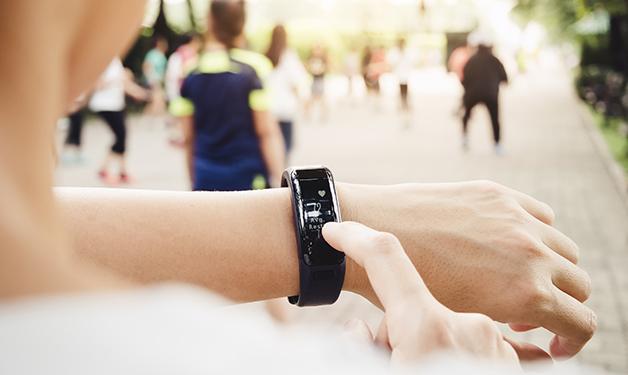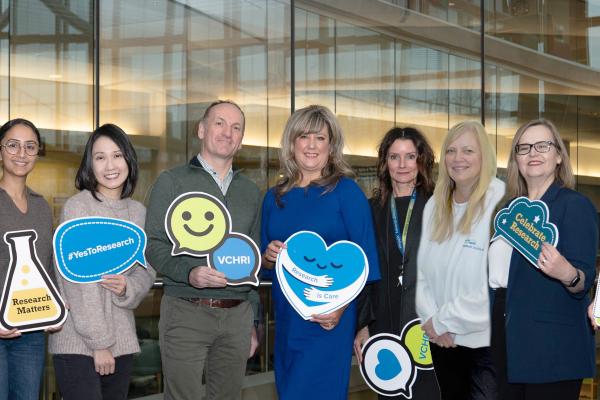
We asked our experts about how wearable tech is changing the face of health care and how the private information these devices collect is being protected.
Seeing someone check a smart watch for health-related information is a common sight. So how are companies using all this data; and, what impact is that having on the health of Canadians? Vancouver Coastal Health Research Institute researchers Dr. Bill Miller and Dr. Emma Smith share their insights.
Q: What qualifies as wearable technology?
Miller: Technology that you wear or is implanted on your person, collects data and is able to be shared with the internet, laptops, computers or smart phones in some way would qualify as wearable tech.
Q: How is wearable tech being integrated into research to improve health care?
Miller: Almost anything commercially available is fair game for use in health research and care—from Apple watches to FitBits. Many researchers are looking to incorporate wearable technology in some way, shape or form into their research. Researchers often try to validate the precision of the data collected by these devices. They also try to better understand the milestones set by some of these wearable tech companies, such as the 10,000 steps per day milestone.
Smith: There is also a lot of research being done into wearables, such as T-shirts that can measure a person’s heart rate, perspiration, range of motion, etc. So, down the road, you might be able to go to a store and purchase clothing that can monitor your heart rate.
Miller: For example, around 40 investigators with the University of British Columbia’s Stitch group are looking into creating fabric-based wearables, including stretch sensors that track movement. Another example is how someone with diabetes can get an insulin pump with a built-in sensor that measures his or her blood glucose levels and will automatically increase or decrease the amount of insulin it administers.
Smith: The AGE-WELL centre of excellence network is also looking into wearable technology for seniors, such as devices that can detect heart rhythms.
Q: Is the 10,000 steps per day goal one that I should be tracking and trying to meet?
Miller: This is an arbitrary number that was picked by somebody, and now everybody tends to use it as the milestone number to reach in a day. However, there is no solid evidence to support that achieving this milestone will make a person healthier. However, any information gathered from wearable tech is good if it leads to behavioural change that has a positive impact on an individual’s health.
Smith: It is important to note that, unless individuals understand the data they are reading, it will not necessarily be beneficial to them in the short-term. The data collected by wearable tech may also not be precise. However, in the long-term, health care providers can use this information to identify patterns and track patients’ health and any health conditions.
Q: Is there a downside to using wearable tech to track my health?
Miller: There are privacy issues that come up when we talk about wearable tech—from wearables tracking the stores you visit to concerns surrounding where your data is stored—as this information can be used to predict your behaviours.
Smith: From a health perspective, if your data is collected, stored and transmitted within Canada, it is protected by health-related privacy legislation. But most of us are using wearables that are produced outside of Canada, store our data outside of Canada and transmit our data across borders. So, there is no guarantee that our data is protected by Canadian legislation.
Miller: This information can also be used to set insurance premiums and, potentially, to determine who does and does not qualify for an insurance policy.
Q: What should I think about when it comes to protecting the data collected by my wearable tech?
Miller and Smith: Some things to keep in mind are:
- Where does the wearable tech company store the data they collect?
- How is the wearable tech company using your data?
- Is the data anonymized?
- How does the company protect your data? Is it encrypted and, if so, how good is the encryption?
- Does the company have a history of protecting private data?
Q: What might the future of wearable technology in health care look like?
Miller: In the future, information from wearable tech may be automatically transferred to health care providers to allow them to monitor patients’ health from afar. Collecting as much data as possible about an individual patient—and from everyone who uses a piece of wearable tech—can improve personalized medicine and the delivery of health care overall.




